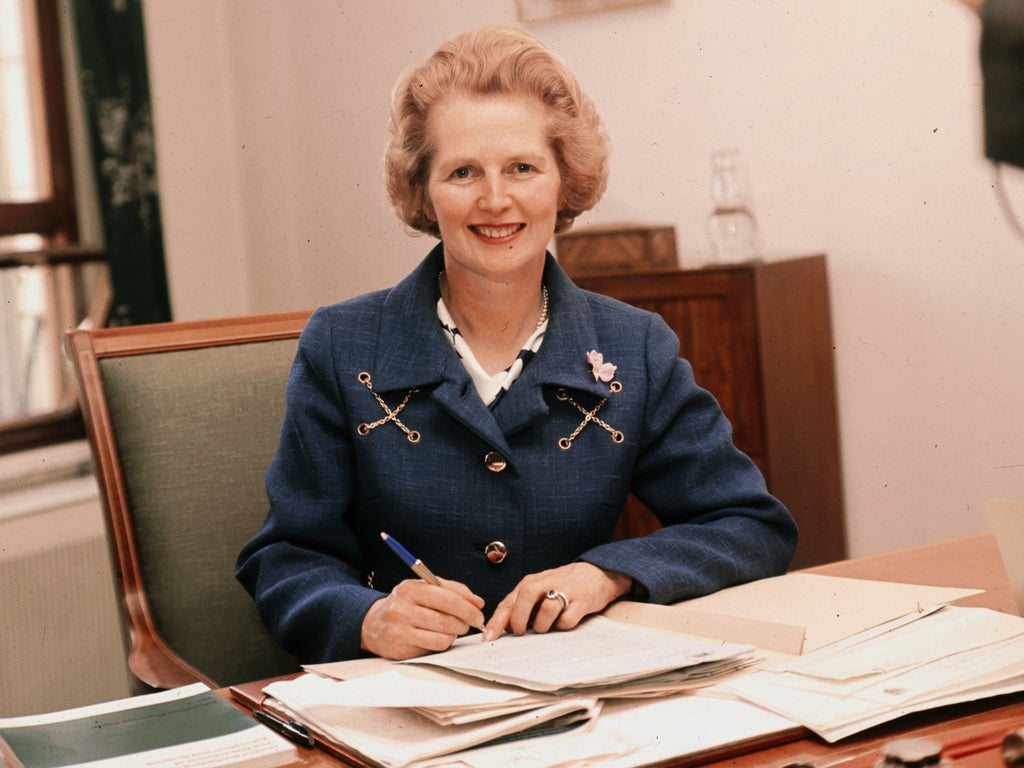John Rentoul: Margaret Thatcher saved the British economy, but at too high a social cost
She achieved great things in changing the economy, but it wasn’t necessary to push unemployment or interest rates that high


Your support helps us to tell the story
From reproductive rights to climate change to Big Tech, The Independent is on the ground when the story is developing. Whether it's investigating the financials of Elon Musk's pro-Trump PAC or producing our latest documentary, 'The A Word', which shines a light on the American women fighting for reproductive rights, we know how important it is to parse out the facts from the messaging.
At such a critical moment in US history, we need reporters on the ground. Your donation allows us to keep sending journalists to speak to both sides of the story.
The Independent is trusted by Americans across the entire political spectrum. And unlike many other quality news outlets, we choose not to lock Americans out of our reporting and analysis with paywalls. We believe quality journalism should be available to everyone, paid for by those who can afford it.
Your support makes all the difference.Many people under the age of 45 - one of them innocently tweeted “Going to sound like such an idiot when I say this, but who is Margaret Thatcher?” - won’t remember the arrival of telephone sockets.
Before landlines also pass into the dim memories of people born before the mobile phone age, allow me to remind you of a time when all phones were connected to a wall cable and could not be disconnected. The only way to avoid being called was to take the phone off the hook - in those days you didn’t get the warning siren - and if you wanted an answering machine you had to apply to a bureaucracy that was still part of the Post Office who had to send someone to install it.
It was Margaret Thatcher who sold British Telecom and created a competitive market in telephones. The first things that happened were phones you could unplug and answering machines you could buy in shops and plug in yourself.
She was a necessary prime minister. The other thing that young people won’t remember was the power cuts of 1972, the three-day-week of 1974 and the winter of discontent. The British economy was inefficient and distorted by excess trade union power, mostly exercised in the interests of relatively well-paid public-sector workers.
She achieved great things in changing the economy and making it domestically productive and internationally competitive again. She was, in my view, a necessary prime minister who saved the British economy, but at too high a social cost. It wasn’t necessary to push unemployment that high – and so much of it hidden on sickness benefit – to end excessive trade union power.
It wasn’t necessary to raise interest rates so high, and therefore push the value of the pound up: all that was done in pursuit of an economic theory known as monetarism, which had a superficial logic but which absolutely refused to obey itself in practice.
Indeed, the breaking of trade union power may well have also gone too far: part of the problem with today’s labour market is that low-paid work is so insecure, with zero-hours contracts and so on, that it makes it harder for people to get off benefits.
But she laid the foundations for decades of economic growth from which the vast majority of the country eventually benefited, and moved several unresponsive public industries into the private sector.
She did the right thing on the Falklands, although that started as a bipartisan venture - it was just that the Labour Party lost its nerve after the first 24 hours. And she was right to stand firm against the Soviet Union, even if she did not like some of the consequences of the end of the cold war, such as the unification of Germany.
At the time, obviously, I thought she was the incarnation of wrong-headed meanness in politics, even as I respected her political skill and judgement. But over time it has become easier to see how important her achievements were. Not least of those has been, like any great leader, to change her opponents. She weaned the Labour Party off its romantic attachment to the soppy and dangerous idea that there is some happy clappy alternative to capitalism. It then took Tony Blair to balance her premiership by making up for the social damage she inflicted and the underinvestment in public services, to rebalance the private affluence and public squalor of her time.
Join our commenting forum
Join thought-provoking conversations, follow other Independent readers and see their replies
Comments